#9
Best Picks- Rod Brind’ Amour (1988) & Logan Couture (2007)
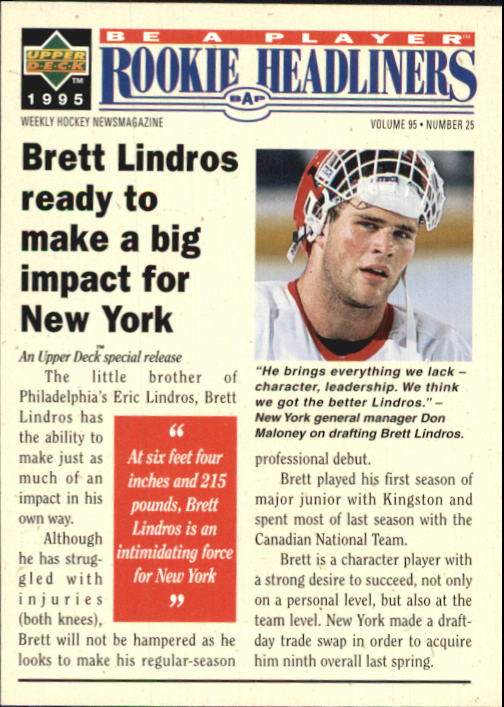
Brett Lindros, the younger brother of NHL star Eric Lindros, was considered a draft bust due to a series of concussions that prematurely ended his career. Despite high expectations and comparisons to his older brother, Brett’s career never took off. He played in just 51 games and retired at the age of 20. In the 1990s, the NHL saw a shift in playing style, with a greater emphasis on defensive skills and physicality. Brett Lindros possessed the size, skill, and toughness that seemed well-suited for success in this era. He showcased his potential in the Ontario Hockey League (OHL), where he played for the Kingston Frontenacs and represented Team Canada. Lindros’ performance caught the attention of NHL teams leading up to the 1994 NHL Draft.
The New York Islanders selected Lindros with the ninth overall pick, hoping to add size and toughness to their lineup. They signed him to a lucrative contract, but due to the 1994-95 lockout, he couldn’t join the team immediately. Lindros continued to excel in the OHL, demonstrating his offensive capabilities with a career-high 24 goals and 47 points in 26 games. When Lindros finally made his NHL debut, he made an impact with his physical style of play. He quickly gained attention by delivering big hits and drawing comparisons to players like Clark Gillies. The Islanders saw him as a potential franchise cornerstone who could bring fans to the arena and elevate the team’s performance.
Unfortunately, Lindros’s career was derailed by concussions. He suffered several undiagnosed concussions during his junior hockey career, and in his first NHL season, he sustained a concussion after a fight. The following season, he suffered another concussion that ultimately ended his career. These injuries, coupled with his history of concussions, forced Lindros into early retirement at the age of 20. Following his retirement, Lindros engaged in a legal dispute with the Islanders over his contract, as the team claimed he had not disclosed his previous concussions. The matter was eventually settled, with Lindros receiving the remaining compensation owed to him. He later transitioned to hosting segments for the NHL Players’ Association and found success in the investment industry.
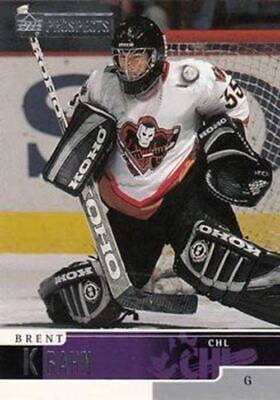
Brent Krahn, the ninth overall pick by the Calgary Flames in the 2000 NHL Entry Draft, is often regarded as a draft bust. The Flames were in need of a goaltender, and Krahn, a top prospect playing for the Calgary Hitmen in their own city, seemed like a perfect fit. However, a series of unfortunate events unfolded that prevented Krahn from fulfilling his potential.
Shortly after Krahn finished his junior career with the Hitmen, the Flames acquired another promising goaltender, Miikka Kiprusoff, who went on to have a successful NHL career with the team. Meanwhile, Krahn struggled with a nagging knee injury that kept him in the minor leagues for several seasons. Despite his solid numbers in the minors, he rarely had the opportunity to showcase his skills due to his recurring knee issues.
Krahn’s NHL dream finally materialized during the 2008-09 season when he played 20 minutes for the Dallas Stars after being called up from the minors. Unfortunately, he allowed three goals on just six shots, and those 20 minutes turned out to be the only NHL action he would ever see. Krahn played two more seasons in the AHL before retiring from professional hockey.
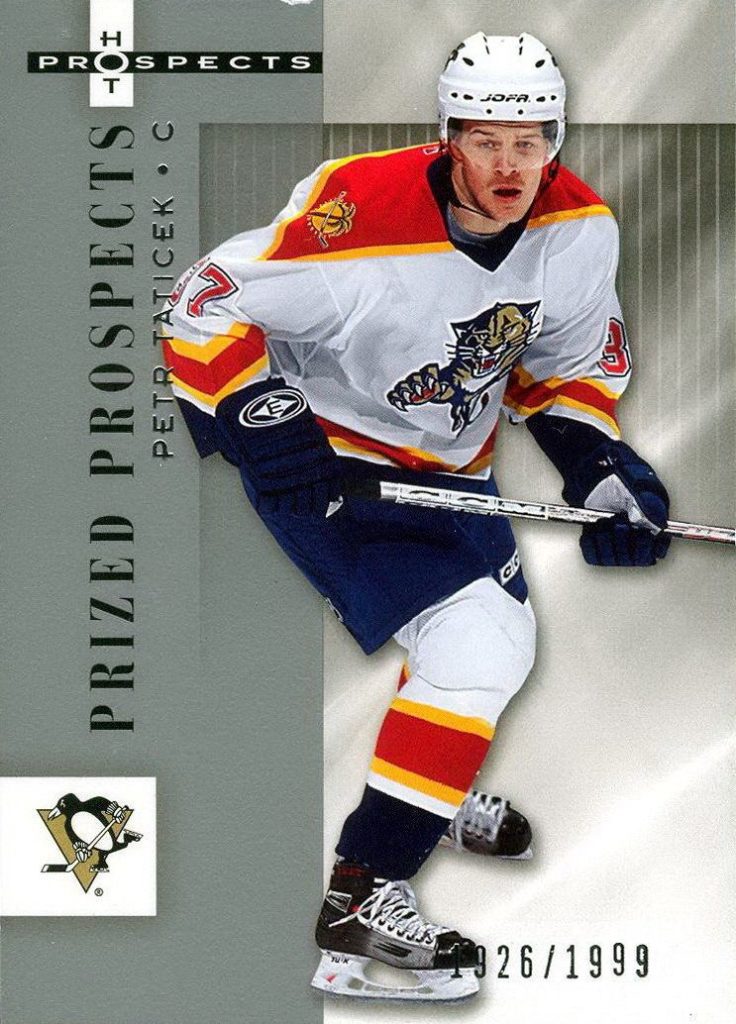
Although it’s important to note that injuries played a significant role in Krahn’s lack of success, the fact remains that he never lived up to the expectations placed on him as a high first-round pick. The Flames missed out on other notable players in the 2000 draft, such as Ron Hainsey, Marcel Hossa, and Brooks Orpik, further highlighting the disappointment surrounding Krahn’s career. Despite his NHL struggles, Krahn continued to call Calgary home and remained involved in the hockey world. He retired from the sport and found work with Pembina Pipeline, a Canadian corporation. While Krahn’s story serves as a reminder of the uncertainties in professional sports and the challenges that can derail a promising career, it also highlights the difficult decision-making process teams face when drafting young talent, especially in the unpredictable position of goaltending.
Petr Taticek’s NHL career can be described as a disappointment and a prime example of a draft bust. The Florida Panthers surprised many die-hard fans when they selected Taticek with the 9th overall pick in the 2002 NHL Entry Draft. However, it quickly became apparent that the Panthers’ expectations for Taticek were far from met.
Despite showing promise in his first year playing in the Ontario Hockey League (OHL) for the Sault Ste. Marie Greyhounds, where he recorded an impressive 63 points in 60 games, Taticek struggled to replicate that success in the following season. This decline in performance was an early sign that he might not live up to the potential the Panthers saw in him.
Taticek’s disappointing performance continued when he finally donned the Panthers’ uniform. He managed to play only three games for the team during the 2005-06 season, failing to register a single point. This lack of impact on the ice made it clear that Taticek was not the player the Panthers had hoped for when they invested such a high draft pick in him.
In a desperate attempt to salvage something from their ill-fated selection, the Panthers eventually traded Taticek to the Pittsburgh Penguins. However, his time in Pittsburgh was even more dismal. Taticek failed to play a single game for the Penguins, leaving his NHL career with a mere three games played overall.
Taticek’s inability to make a significant impact in the NHL and his quick departure back to his home country of the Czech Republic painted a picture of a player who couldn’t handle the competitiveness and demands of the North American game. His lackluster performance and inability to live up to his draft position made him one of the biggest draft busts in NHL history.
Looking back, it is clear that the Panthers’ decision to select Petr Taticek with the 9th overall pick was a grave mistake. The franchise had high hopes for him, but his career quickly fizzled out, leaving behind a legacy of unfulfilled potential and wasted opportunity.
| YEAR | NHL | PLAYER | POS | TEAM | GP | P | HOMETOWN |
| 1994 | NYI | Brett Lindros | RW | Kingston (OHL) | 51 | 7 | London, ON |
| 2000 | CGY | Brent Krahn | G | Calgary (WHL) | 1 | 0 | Winnipeg, MB |
| 2002 | FLA | Petr Taticek | C | Ste St Marie (OHL) | 3 | 0 | Rakovnic, CZE |
Winner- Petr Taticek
#8
Best Picks- Ray Bourque (1979) & Sergei Samsonov (1997)
Worst
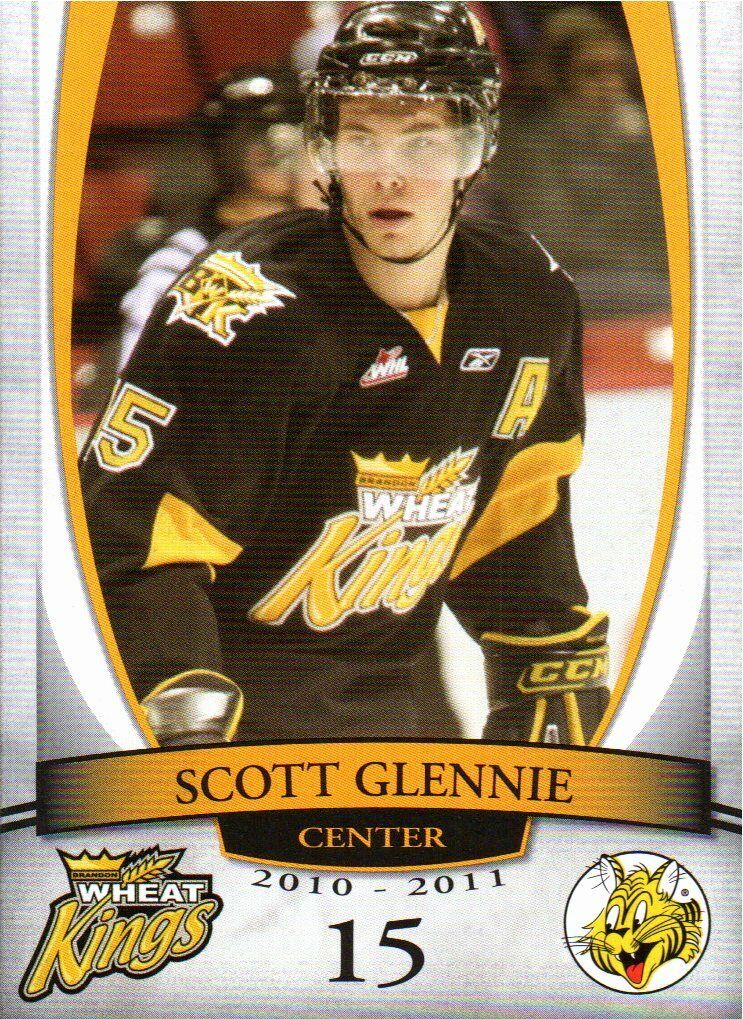
Just as I was thinking the number #8 spot would be a close race I remembered Scott Glennie. I don’t even have to go into debate with the other candidates on who the worst bust ever drafted at #8 is now that he is in the mix. Again there really isn’t need to go into the mishaps of the others here since Scott Glennie is on the list. I remember watching the Brandon Wheat Kings in 2010. Scott Glennie and Brayden Schenn were the 2 laziest hockey players I had ever witnessed. On more than one occasion. They floated around like figure skaters not hitting anything and cherry picking worse than I had ever seen. Then they would go to the bench and when the rest of the team was sitting the 2 of them stood right next to the gate like they were ready to go out ignoring their team mates and just chatting and giggling with each other like little girls. They were so highly touted back then yet Brayden McNabb and the Kootenay Ice hammered them everytime.🙄🤪I watched him before he got drafted and I remember watching the draft having to question myself if I was still drunk from the night before when I seen him called at #8. I honestly figured he was related to Gary Bettman or something🤔
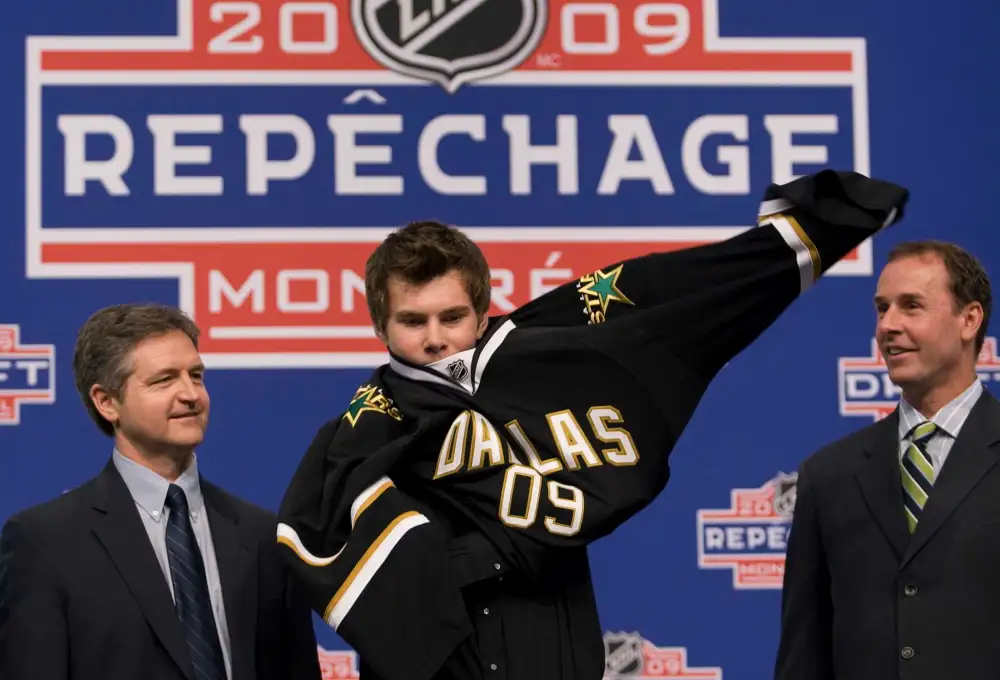
Back in 2006, Scott Glennie was selected as the 29th overall pick by the Brandon Wheat Kings in the WHL Bantam Draft. Right from his rookie season in 2007-08, he caught the attention of the league and scouts by scoring 26 goals and accumulating 58 points in 61 games. He even earned a spot on Canada’s Western U17 team for the 2007 World U17 World Championships, where he outperformed players like Matt Duchene and Taylor Hall with four goals and 10 points in six games.
In the following year, 2008-09, Glennie’s performance continued to impress as he improved his all-around game and increased his offensive numbers to 28 goals and 70 points in 55 games. Unfortunately, his year was cut short due to a broken elbow, but he still managed to contribute with 18 points in 12 playoff games.
Heading into the 2009 NHL Draft, Glennie was highly regarded and expected to be chosen within the top 10 picks. The Dallas Stars selected him at the eighth spot, and he was considered a promising player with great speed and puck skills, projected to become a top-six winger. Although he had some defensive weaknesses, his offensive abilities were above average, and overall, his game showed no significant flaws.

After being drafted, Glennie was sent back to the Wheat Kings. However, due to a groin injury, he couldn’t make a strong case for a roster spot during training camp. Consequently, he spent the next two years playing in the WHL, where he recorded an additional 67 goals and 180 points over 136 games. In 2011-12, he joined the AHL Texas Stars at the age of 20 but suffered from concussion-like symptoms before the season began. Fortunately, he returned two weeks later and played for the Stars’ AHL team.
Glennie had a decent rookie season in the AHL, accumulating 37 points in 70 games. This performance earned him a call-up to the Dallas Stars for his NHL debut towards the end of the season, which reflected the team’s appreciation for his efforts.
However, the following season didn’t go as smoothly. Glennie dealt with various hand injuries and faced criticism for his work ethic and conditioning issues, resulting in being a healthy scratch more frequently. In 2012-13, he played only 37 games for the Texas Stars, tallying 14 points, followed by 28 points in just 50 games in 2013-14. It became apparent that Glennie’s potential would not fully materialize, and in 2015, the Dallas Stars chose not to extend a qualifying offer to the 24-year-old, effectively ending his career with the team.
With no contract in hand, Glennie spent the entire 2015-16 season rehabilitating from shoulder surgery. Unsure of his future, he had ample time to reflect on the direction of his life. It became clear to Glennie and those close to him that he had fallen in love with the lifestyle of a high-profile athlete rather than the game itself. He neglected training and became complacent, failing to maintain the necessary work ethic to sustain his career and reach his potential.
In the 2016-17 season, Glennie was fortunate to receive a professional tryout offer from the Manitoba Moose, his hometown AHL team. After a 25-game tryout, he impressed the management enough to secure a spot on the team. However, after a strong start with five points in his first three games, he struggled to maintain his performance and could only manage 15 points in the next 42 games then shut er down. In 2022-23 he coached HC Edmonton in the JPHL to second in the Alberta division
| YEAR | NHL | PLAYER | POS | TEAM | GP | P | HOMETOWN |
| 1995 | MTL | Terry Ryan | LW | Tri City (WHL) | 8 | 0 | St. John’s, NF |
| 1996 | BOS | Johnathan Aitken | D | Medicine Hat (WHL) | 44 | 1 | Edmonton, AB |
| 2004 | CMB | Alexandre Picard | LW | Lewiston (QMJHL) | 67 | 2 | Les Saules, PQ |
| 2007 | BOS | Zach Hamill | C | Everett (WHL) | 20 | 4 | Vancouver, BC |
| 2009 | DAL | Scott Glennie | C | Brandon (WHL) | 1 | 0 | Winnipeg, MB |
Winner- Scott Glennie.